Groups of defiant "yellow vest" demonstrators faced off with tens of thousands of police around France on Saturday, but the protest movement appeared to have lost momentum on a fifth and decisive weekend.
President Emmanuel Macron, facing the biggest crisis of his presidency, announced a series of concessions on Monday to defuse the explosive "yellow vest" crisis, which swelled up from rural and small-town France last month.
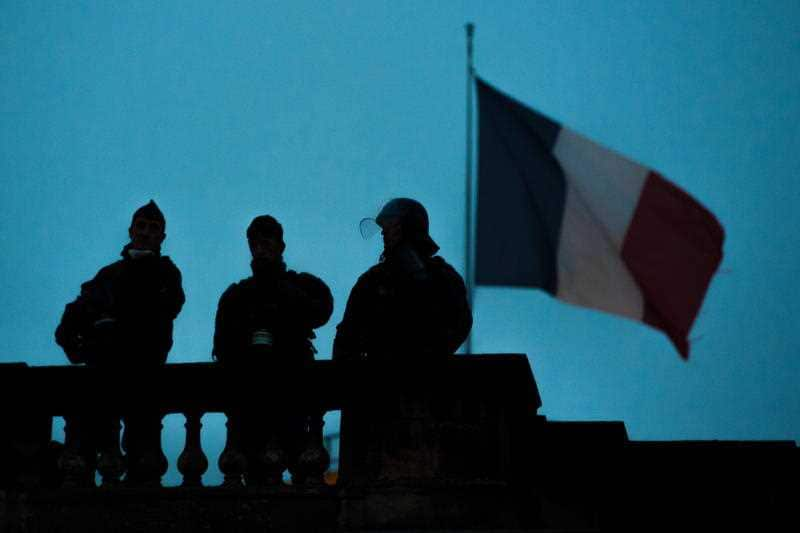
The package of tax and minimum wage measures for low-income workers, coupled with bitter winter weather this weekend, appeared to have helped bring calm to the country after more than a month of clashes and disruption.
France was also hit by a fresh deadly terror attack on Tuesday night when a gunman opened fire at a Christmas market in Strasbourg, leading the government to urge people to stay at home to spare the stretched security forces.
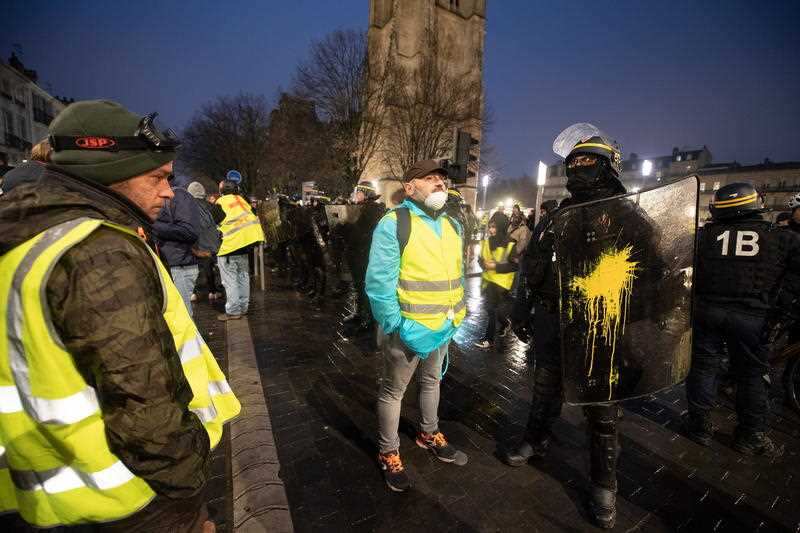
"It's a bit of a failure because the state is stopping us from being able to demonstrate properly," Marie, a 35-year-old domestic helper, told AFP in Paris after travelling her home around 50 kilometres south of the capital.
An estimated 66,000 people took to the streets across France, according to figures from the interior ministry at 6:00 pm, 1700 GMT, half the level of a week ago.
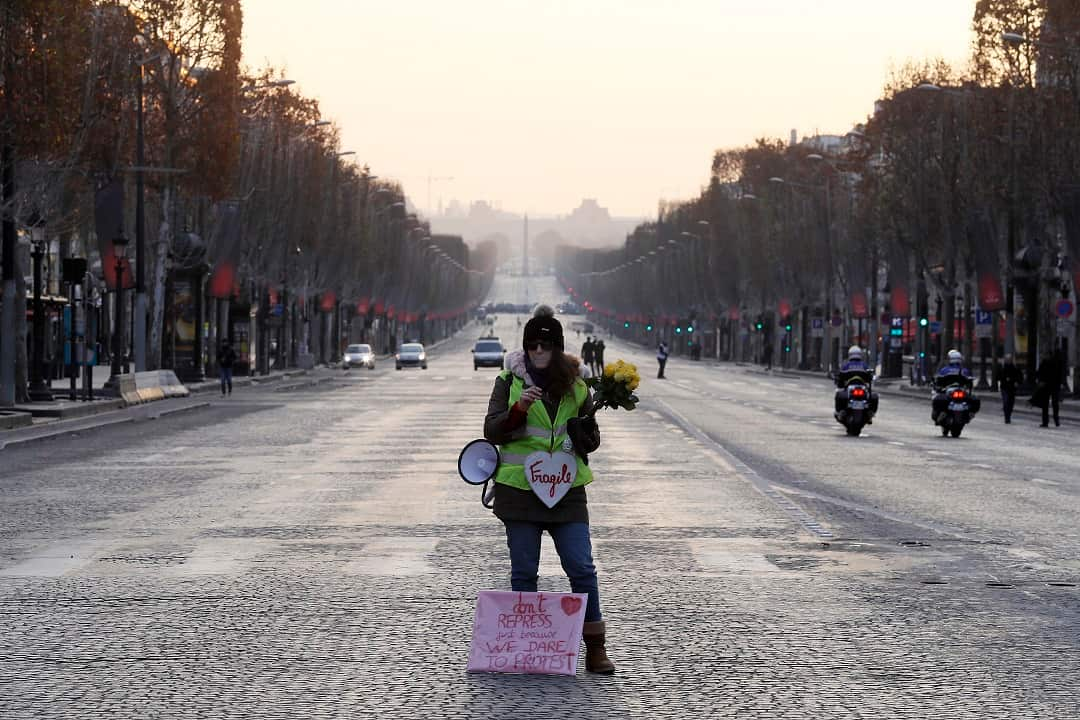
"It's a bit disappointing. We expected there to be more people, but the movement won't end," Francis Nicolas, a 49-year-old labourer, told AFP from a small crowd who gathered in the southeastern city of Lyon.
In Paris, the more than 8,000 police on duty easily outnumbered the 2,200 protesters who were counted on the streets of the capital by local authorities in the early afternoon.
There had been 168 arrests by 6:00 pm (1700 GMT), far down on the roughly 1,000 of last Saturday.
Tear gas was occasionally fired, but a fraction of the amount was used compared with the weekends of December 8 or December 1 when graffiti was daubed on the Arc de Triomphe in scenes that shocked France.
"The turnout was lower, which was necessary from my point of view," parliament speaker Richard Ferrand, a close ally of Macron, told the C News channel on Saturday evening. "It's not a time for combat, but debate," he added.
Minor clashes in the cities of Toulouse, Nantes and Bordeaux were reported, while protesters snarled traffic on motorways in the south of the country and on the A16 near the port of Calais in the north.
Public opinion
Until this week, a clear majority of French people had backed the protests, which sprung up initially over tax hikes on transport fuel before snowballing into wide opposition to Macron's pro-business agenda and style of governing.
But two polls published on Tuesday - in the wake of Macron's concessions - found the country was now split broadly 50-50 on whether the protests should continue.
"We expect slightly less people (in the streets) but individuals who are slightly more determined," junior interior minister Laurent Nunez said late Friday.
Around 8,000 police were on duty in Paris on Saturday, the same number as last weekend, backed up by 14 armoured vehicles, water cannons and horses which are used for crowd control.
Around 90,000 security forces were mobilised last Saturday across France and 2,000 people were detained, around half of them in Paris.
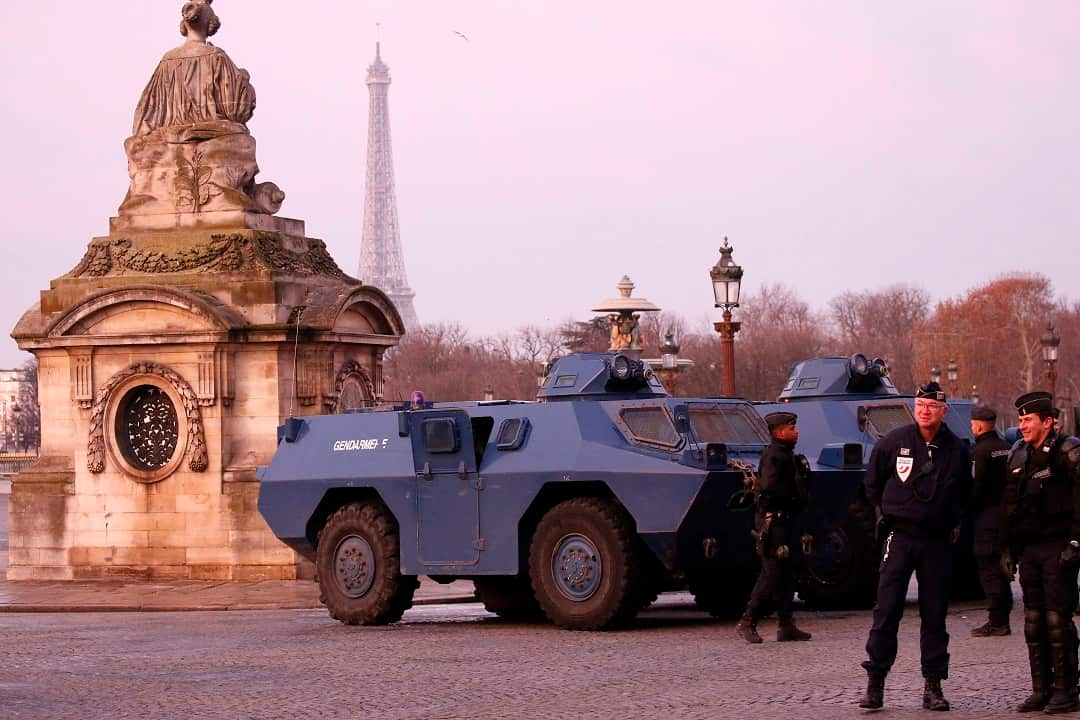
"That people demonstrate, no problem, but the vandalism is appalling," Maria, who manages the Le Vin Coeur restaurant near the Arc de Triomphe in Paris told AFP on Saturday morning.
Like thousands of other business and restaurant owners across the capital, she was apprehensive and ready to pull down her shutters and close at the first whiff of tear gas.
Need for calm
Many of the "yellow vest" figureheads, along with leaders of the far-left Unbowed France party, urged protesters to turn out on Saturday to pressure the government into making further concessions.
Others suggested that the mostly small town and rural protesters should show resolve by rallying in the regions rather than heading for the capital.
France "needs calm, order and to go back to its normal functioning," Macron said Friday.
On Thursday, government spokesman Benjamin Griveaux had called on protesters to stay at home on what is normally a busy shopping weekend ahead of Christmas.
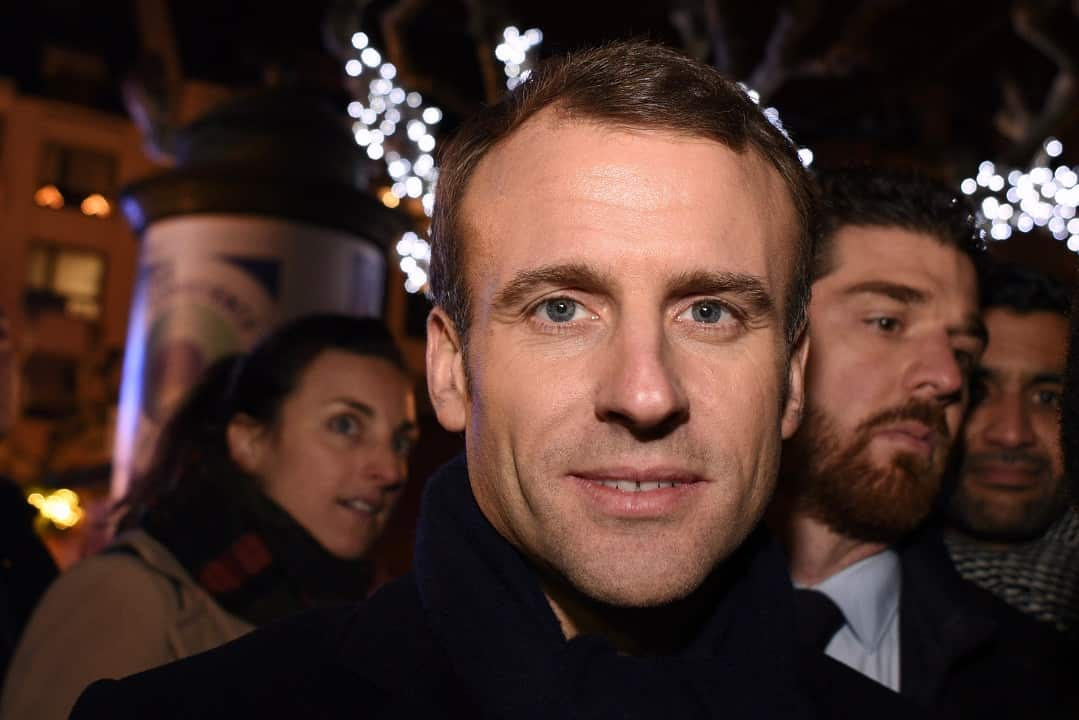
"It would be better if everyone could go about their business calmly on Saturday, before the year-end celebrations with their families, instead of demonstrating and putting our security forces to work once again," he said.
He was speaking in the wake of an attack Tuesday in the eastern city of Strasbourg, which left four dead and 12 wounded.
In a bid to end the protests, Macron announced a package of measures on Monday estimated by economists to cost up to 15 billion euros ($17 billion).
He cancelled the planned fuel tax hikes, offered a rise in the minimum wage, tax relief for pensioners and tax-free overtime for workers in 2019.

